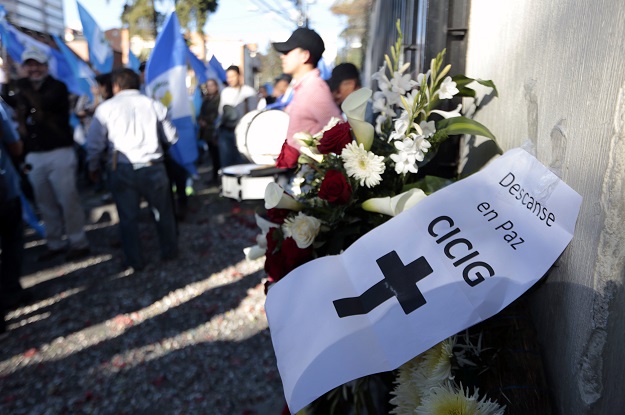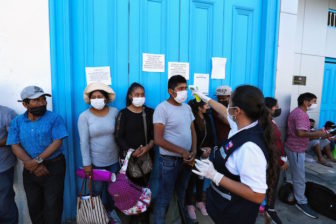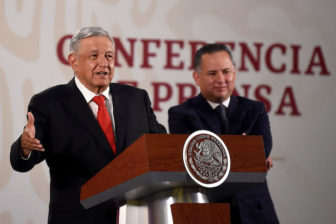Part of a continuing series on Latin America’s crackdown on corruption.
In 2015, I began my first term in the U.S. House of Representatives, as the first member of Congress from Guatemala. That year, I watched the “Guatemalan Spring” from afar. I read with shock the growing list of corruption allegations against President Otto Pérez Molina and Vice President Roxanna Baldetti. I watched hopefully as young people filled Guatemala City’s plaza daily to demand a transparent and effective government. I could barely believe my eyes when I saw a Guatemalan President and Vice President voluntarily relinquishing power.
The following year, I traveled to Guatemala to attend the inauguration of a new president, Jimmy Morales, who campaigned on promises of clean government. During the ceremony, President Morales asked every Guatemalan to join him in putting their right hand on their hearts, and vow to obey the law and work with him to fight corruption. As someone born during the country’s long civil war, I felt that Guatemala had finally moved onto a new chapter.
But history’s grasp is powerful. On Monday, President Morales moved unilaterally to expel a UN-sponsored anti-corruption entity, giving its staff 24 hours to leave the country. Active since 2007, the International Commission against Impunity in Guatemala, known as CICIG, was critical in holding Morales’ predecessor accountable. Its investigations have exposed networks of corruption and organized crime operating at the heart of Guatemala’s government. Morales himself is under investigation for two separate cases of corruption; one of those investigations has been carried out with assistance from CICIG.
On Tuesday, Guatemala’s Constitutional Court voted to suspended Morales’ decision, but the country now faces a constitutional crisis. Washington’s response has been weak. As recently as last year, the U.S. supported CICIG and condemned Morales’ efforts to undermine it. Now, the State Department has not condemned Morales’ actions, stating rather that the U.S. supports a “reformed CICIG” in September.
Right now, President Trump is holding the federal government hostage to fulfill a campaign promise to build a wall to keep migrants out of the U.S.; Washington should instead support efforts to root out the corruption and organized crime that drives Central Americans to flee their countries in the first place. Instead, the Trump administration’s lack of pressure on Morales has been a green light for his government’s increasingly authoritarian moves.
When Morales tried to expel the CICIG Commissioner Iván Velásquez, the Constitutional Court blocked the expulsion. But the government and CICIG have been on a collision course ever since. Many of the president’s closest allies are in Congress, where they have blocked judicial reforms proposed by CICIG. After Morales’ attempted expulsion of Velásquez, lawmakers voted to eliminate mandatory jail time for campaign finance violations and other crimes. The public backlash was so fierce that Congress was forced to backtrack.
Morales and his allies haven’t given up. Congress has since reduced the penalty for campaign finance violations, and Morales has purged his cabinet of reformists. The new interior minister, Enrique Degenhart, has been working to dismantle the civilian police department, which the U.S. has spent more than a decade training and vetting.
Many in Guatemala now speak of an impending breakdown in the constitutional order, a “technical coup” removing all constraints on executive power. President Morales has betrayed his commitment to the Guatemalan people and appears willing to dismantle the country’s democracy to save himself.
The Constitutional Court is the only remaining check on Morales’ power, but the President and his allies in Congress have threatened to remove key magistrates from the Court. Many in Guatemala are looking to the U.S. for help.
Putting our heads in the sand would be a serious mistake. Standing with Guatemala’s corruption fighters is not just a question of principles. It’s also one of self-interest. If Guatemala descends back into lawlessness, it’ll become a magnet for international organized crime, global investment will dry up, and the number of families arriving on our southwest border seeking haven will skyrocket.
If the Trump administration won’t act, Congress must. I will soon reintroduce the Guatemala Rule of Law Accountability Act, which would impose sanctions on individuals who have undermined the rule of law in Guatemala. We must also withhold assistance to Guatemala’s national government until the current crisis is resolved satisfactorily. It isn’t too late, but we must act now. Guatemala is on the brink.
—
Norma J. Torres represent California’s 35th district in the U.S. House of Representatives. The first Guatemalan elected to the U.S. Congress, she is co-chair of the House Central America Caucus.







